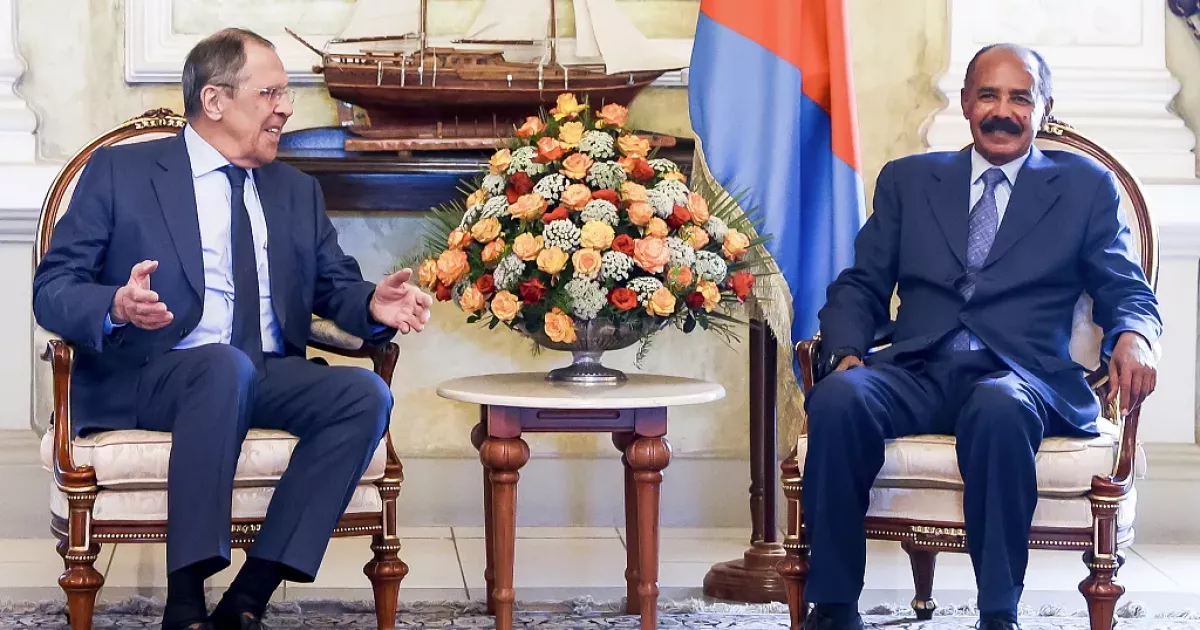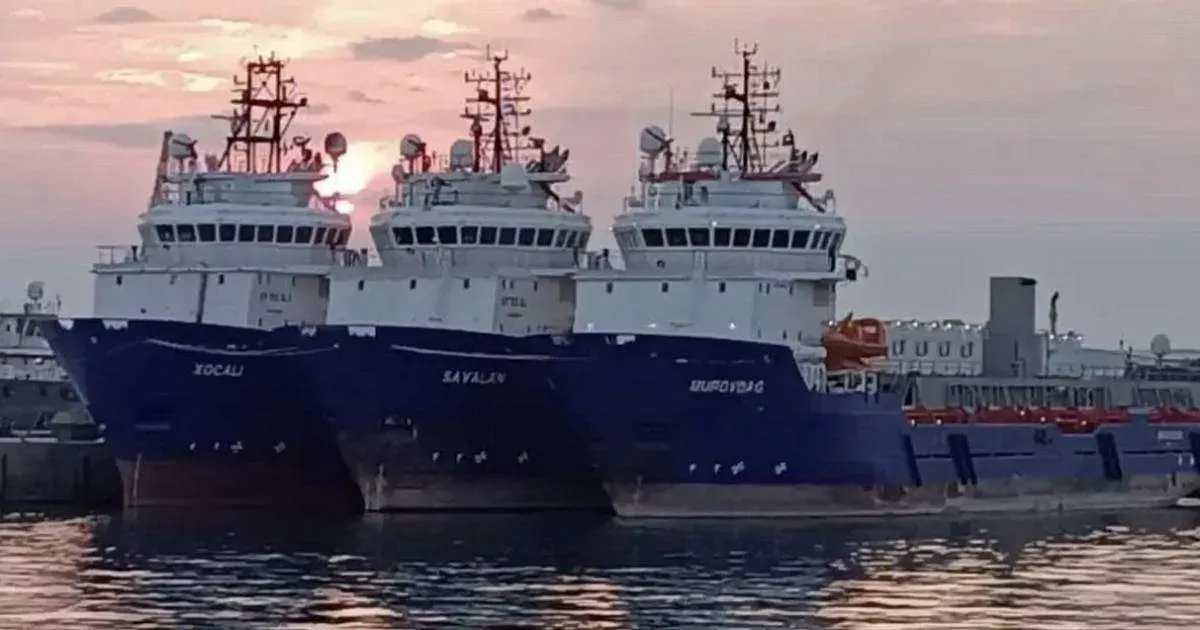How Eritrea contributed to breaking West's chokehold on Red Sea Article by The Cradle
Eritrea, a small Red Sea nation in the Horn of Africa, is once again under the Western microscope. In January, American analyst and ex-Pentagon official Michael Rubin openly called for regime change, labelling Eritrea “the North Korea of Africa.” Meanwhile, Israeli media framed Eritrea as an Iranian proxy and a security threat to both Israel and the US, with some even alleging that Yemen’s Houthi forces were expanding into Eritrean territory. These warnings appear less rooted in human rights concerns—especially when compared to the silence surrounding other neighbours bordering the Red Sea—and more in fears that Western dominance in the region is eroding.
According to an insight article published by The Cradle, Eritrea, a former partner of Israel, began pivoting toward a new bloc in 2020: China, Russia, and Iran. Sudan has reportedly opened Port Sudan to Russian and Iranian forces, and China is consolidating ties with Djibouti. In this context, any move to destabilize Asmara could ignite broader unrest in the Horn of Africa and further undercut Washington’s shrinking influence.
Since its independence in 1993, Eritrea has had uneasy relations with the US Initial cooperation—such as participation in the US-led Front Line States initiative against Sudan, accused of arming Eritrean jihadists—declined after Eritrean President Isaias Afwerki’s overture for deeper ties was rejected. At the time, Washington, already aligned with Yemen and Djibouti, chose to prioritize Ethiopia.
A short war with Yemen in 1995 over the Hanish Islands sparked accusations of Israeli support for Eritrea. While relations with Tel Aviv warmed, ties with the US continued to sour. By 2005, Asmara had expelled USAID, frustrated by Washington’s embrace of Ethiopia during the War on Terror and failure to enforce the Algiers Agreement. Yet Eritrea still offered to host a US military base and sent troops to Iraq. The offer was declined. With a strong US presence already in Djibouti, Eritrea was deemed dispensable.
In 2009, the UN Security Council—backed by the US—imposed sanctions over Eritrea’s refusal to pull troops from Djibouti and its alleged support for Al-Shabaab, an Islamist insurgent group based in Somalia and Al-Qaeda ally. Even after Eritrea withdrew and ended its support, the sanctions persisted.
In response, Asmara sought Tehran’s support, endorsing Iran’s civilian nuclear program and granting the IRGC access to Port Assab. As the article portrays, this allowed Iran to track Western naval movement and provided financial backing to Eritrea.
Despite this, Eritrea continued its covert relationship with Israel. In 2012, US risk analysis think tank Stratfor confirmed that Israel operated surveillance bases in Eritrea, adding another in 2016 to monitor Yemen’s Ansarallah movement, the formal name of the Houthi rebels. However, in 2015, Eritrea joined the Saudi-UAE campaign in Yemen, cutting ties with Iran and becoming a logistics hub for the Gulf coalition. Eritrea even deployed 400 troops, aiding the UAE’s military advances.
China and Russia fill void after West withdraws
The 2018 peace accord with Ethiopia brought a temporary easing of Western sanctions, but rapprochement didn’t last. In 2020, Eritrea rejected Israel’s new ambassador without explanation. That same year, the Trump administration added Eritrea to its “Muslim ban,” and the UAE began scaling back its presence in Eritrea, eventually withdrawing in 2021.
China stepped in. A long-standing supporter of Eritrean independence, Beijing deepened its involvement amid the COVID-19 pandemic. Bilateral trade surged to record levels, and Eritrea increasingly turned to China and Russia for economic and strategic alignment.
As Western pressure intensified in the region, tensions rose. In 2021, Israel violated Eritrean sovereignty by targeting an Iranian vessel in its waters. The US then reimposed sanctions—this time citing Eritrea’s role in Ethiopia’s Tigray war.
In 2022, Israel shuttered its embassy in Asmara. Soon after, the Knesset passed legislation enabling deportation of Eritrean migrants supportive of their government. Meanwhile, Ethiopia and Israel began strengthening ties.

Doubling down, Eritrea became one of just five nations to vote against the 2022 UN resolution condemning Russia’s war in Ukraine. In January 2023, Russian Foreign Minister Sergei Lavrov visited Asmara, and by 2024, Russian naval ships had docked in Massawa. While trade with Russia is still modest, it is growing steadily.
China’s footprint is even more substantial. It now accounts for a third of Eritrea’s imports and two-thirds of its exports, investing heavily in infrastructure and mining. Eritrea joined China’s Belt and Road Initiative (BRI) in 2021 and declared a “strategic partnership” in 2022.
Tehran’s return to the Red Sea
The most dramatic transformation is Eritrea’s rekindled alliance with Iran. Once an opponent of Yemen’s Ansarallah, Eritrea now refuses to denounce the group’s Red Sea blockade. In 2024, Foreign Minister Osman Saleh attended the inauguration of Iranian President Masoud Pezeshkian. During the event, Eritrea condemned Israel’s assassination of Hamas leader Ismail Haniyeh.
Reports suggest that Iran has agreed to provide Eritrea with drones and other military tech. In November 2024, Eritrean forces seized three Azerbaijani vessels in its waters, holding 24 crew members until their release in March 2025 following prolonged negotiations with Baku. The article links this incidence to Iran’s regional strategy. If the IRGC regains access to Assab, the author suggests this could provide critical support to Ansarallah and Palestinian factions across the Red Sea.

However, the article warns that aligning with Eritrea is not without complications. Ethiopia—40 times Eritrea’s size economically and demographically—is also tilting eastward. China dominates Ethiopian trade, while Russia and Iran are increasingly active, especially in military affairs. Iranian drones proved decisive in defeating the Tigray rebellion.
Both nations are now BRICS members, and an Eritrea-Ethiopia conflict could force China, Russia, and Iran into a difficult balancing act. But it also opens diplomatic doors. In 2023, Turkiye brokered peace between Somalia and Ethiopia. Similar mediation could help de-escalate tension between Eritrea and Ethiopia, aligning with Eurasian powers' economic and strategic interests.
As the Iran-aligned Axis of Resistance recovers from Israeli-led setbacks—including the assassination of senior Hezbollah and Hamas figures and the fall of Syria’s Assad government—US influence is weakening. America’s Djibouti base, once a pillar of its regional dominance, now faces limits: Djibouti has blocked US strikes on Ansarallah and seeks to curtail UAE presence. After Djibouti’s refusal, Washington considered recognizing Somaliland and establishing a base there, reflecting a sense of strategic urgency and limited options.
Strategic shift sparks Western alarm
Eritrea’s pivot from Tel Aviv to Tehran has drawn fierce backlash. Calls for regime change have grown louder, notably from neoconservative circles like the American Enterprise Institute's (AEI) Michael Rubin, who, according to the article, cites human rights while branding Eritrea a threat to US allies. Israeli outlet Haaretz was more direct, calling Eritrea a “strategic threat” and Iranian satellite.
Eritrea’s alignment with China, Russia, and Iran is reshaping the Red Sea order. If Iran reestablishes a foothold in Assab, the article foresees it enabling faster arms transfers to Ansarallah and Palestinian factions—tilting the region’s balance. Overplaying their hand, Washington and Tel Aviv risk a blowback that could redefine West Asia’s geopolitical landscape.
By Nazrin Sadigova








